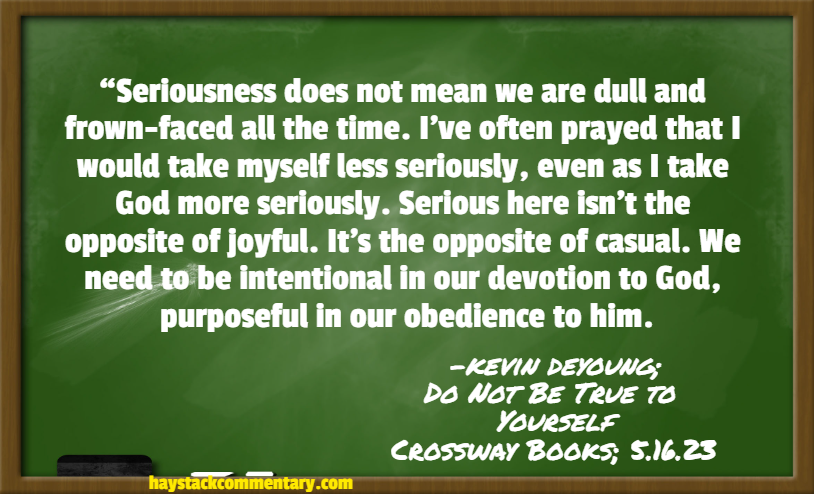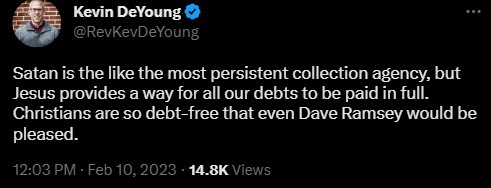kevin deyoung
Kevin DeYoung (born in South Holland, Illinois in 1977) is an American Christian Reformed Evangelical theologian and author. DeYoung is a pastor in the Reformed Church in America and a member of The Gospel Coalition.
A native of Jenison, Michigan, Kevin graduated from Hope College in Holland, Michigan, with a B.A. in religion. He earned his Master of Divinity degree at Gordon Conwell Theological Seminary in South Hamilton, Massachusetts. He received his doctorate in Early Modern History at the University of Leicester in the UK. His research has focused on the theology of John Witherspoon, a Scottish-American Presbyterian theologian who was a founding father of the United States. Before accepting the call to lead Christ Covenant, Kevin served as pastor of University Reformed Church in East Lansing, Michigan. He is the author of more than twenty books and a popular columnist, blogger, and podcaster. Kevin and his wife, Trisha, have nine children.
A native of Jenison, Michigan, Kevin graduated from Hope College in Holland, Michigan, with a B.A. in religion. He earned his Master of Divinity degree at Gordon Conwell Theological Seminary in South Hamilton, Massachusetts. He received his doctorate in Early Modern History at the University of Leicester in the UK. His research has focused on the theology of John Witherspoon, a Scottish-American Presbyterian theologian who was a founding father of the United States. Before accepting the call to lead Christ Covenant, Kevin served as pastor of University Reformed Church in East Lansing, Michigan. He is the author of more than twenty books and a popular columnist, blogger, and podcaster. Kevin and his wife, Trisha, have nine children.
Why Ligon Duncan Is Still Building Institutions
If anyone ever asks you which living theologian you’d most like to have lunch with, you may want to consider choosing Reformed Theological Seminary (RTS) chancellor and CEO Ligon Duncan. Here’s why: Ligon is warm, engaging, and quick to laugh. He remembers your name, tells funny stories, and can talk about nearly any topic, from the covenant idea in ante-Nicene theology to NASCAR. He’s friendly and easy to be friends with. “Lig is one of the kindest, most gracious, most encouraging men I know,” Kevin DeYoung said. “And that’s saying a lot considering he is also whip-smart and in charge of such a large, sprawling institution.......Lig is one of the guys whose influence for good often goes unnoticed because he loves to platform others and never toots his own horn,” DeYoung said. (Sarah Zylstra/Gospel Coalition 12/5/23)
Read More>>>>>
If anyone ever asks you which living theologian you’d most like to have lunch with, you may want to consider choosing Reformed Theological Seminary (RTS) chancellor and CEO Ligon Duncan. Here’s why: Ligon is warm, engaging, and quick to laugh. He remembers your name, tells funny stories, and can talk about nearly any topic, from the covenant idea in ante-Nicene theology to NASCAR. He’s friendly and easy to be friends with. “Lig is one of the kindest, most gracious, most encouraging men I know,” Kevin DeYoung said. “And that’s saying a lot considering he is also whip-smart and in charge of such a large, sprawling institution.......Lig is one of the guys whose influence for good often goes unnoticed because he loves to platform others and never toots his own horn,” DeYoung said. (Sarah Zylstra/Gospel Coalition 12/5/23)
Read More>>>>>
How we speak does matter
Kevin De Young has written an important critique of the Moscow crowd led by Doug Wilson. Kevin’s offering is both irenic and castigating. Kevin’s stated purpose is less to address theological concerns coming from the Moscow of Idaho, but to explain the success of Moscow and why this ought to concern Christians.
(Murray Campbell 11/29/23)
READ MORE>>>>>
Kevin De Young has written an important critique of the Moscow crowd led by Doug Wilson. Kevin’s offering is both irenic and castigating. Kevin’s stated purpose is less to address theological concerns coming from the Moscow of Idaho, but to explain the success of Moscow and why this ought to concern Christians.
(Murray Campbell 11/29/23)
READ MORE>>>>>
On Culture War, Doug Wilson, and the Moscow Mood
“Each of the great world civilizations,” Christopher Dawson wrote in his classic work from the 1940s on Religion and the Rise of Western Culture, “has been faced with the problem of reconciling the aggressive ethos of the warrior with the moral ideals of a universal religion. But in none of them has the tension been so vital and intense as in medieval Christendom and nowhere have the results been more important for the history of culture.” At the heart of Dawson’s provocative thesis is the insistence that Western European culture was the coming together of two cultures, two social traditions, and two spiritual worlds. The cultural formation of Europe combined “the war society of the barbarian kingdom with its cult of heroism and aggression,” leavened by “the peace society of the Christian Church with its ideals of asceticism and renunciation and its high theological culture.” Arguably, the Crusades expressed the best and the worst of this synthesis. There were times when the fusion of warrior-heroism and Christian virtue produced something noble and exemplary during the centuries-long effort to reclaim the Holy Land. And there were times when the fusion failed and produced something ugly and lamentable. But even the failures teach us about the aspirational ideals of Christendom. We cannot understand the rise of Western culture without the religious unity imposed by the Christian Church in the Middle Ages, and likewise, we cannot understand the flourishing of Christendom unless we understand that it grew up out of the soil of warrior kings and barbarian kingdoms. (Kevin DeYoung/Clearly Reformed 11/27/23)
READ MORE>>>>>
“Each of the great world civilizations,” Christopher Dawson wrote in his classic work from the 1940s on Religion and the Rise of Western Culture, “has been faced with the problem of reconciling the aggressive ethos of the warrior with the moral ideals of a universal religion. But in none of them has the tension been so vital and intense as in medieval Christendom and nowhere have the results been more important for the history of culture.” At the heart of Dawson’s provocative thesis is the insistence that Western European culture was the coming together of two cultures, two social traditions, and two spiritual worlds. The cultural formation of Europe combined “the war society of the barbarian kingdom with its cult of heroism and aggression,” leavened by “the peace society of the Christian Church with its ideals of asceticism and renunciation and its high theological culture.” Arguably, the Crusades expressed the best and the worst of this synthesis. There were times when the fusion of warrior-heroism and Christian virtue produced something noble and exemplary during the centuries-long effort to reclaim the Holy Land. And there were times when the fusion failed and produced something ugly and lamentable. But even the failures teach us about the aspirational ideals of Christendom. We cannot understand the rise of Western culture without the religious unity imposed by the Christian Church in the Middle Ages, and likewise, we cannot understand the flourishing of Christendom unless we understand that it grew up out of the soil of warrior kings and barbarian kingdoms. (Kevin DeYoung/Clearly Reformed 11/27/23)
READ MORE>>>>>
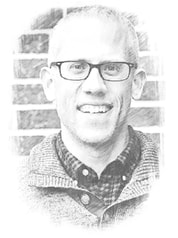 Kevin Deyoung Files
Kevin Deyoung Files
In the last several years, we have seen a resurgence of interest among Christians in political theology. On the whole, I believe this has been a good thing intellectually. I’m less certain this has been a good thing ecclesiastically.
We need smart, well-read Christians talking about natural law, the magisterial Reformers, Enlightenment philosophy, and American history. We need experts weighing in on the differences between classic liberalism, conservatism, libertarianism, progressivism, and post-liberalism. Having done my doctoral work on John Witherspoon, I am personally very interested in reading about Locke and the Founders, in analyzing the Declaration and the Constitution, and in examining what political principles we can glean from the Bible and from the wisdom of the church through the ages. More Christians reading deeply and thinking carefully about political theology is a welcome development.
Okay, you’re wondering, so where’s the “but”? The “but” is about political theology that supplants the centrality of the church. This can happen by deliberate conviction (the political theology calls for it), but it can also happen by the sheer weight of interest in politics. The issue isn’t merely idolatry (“You are too concerned about politics!”). The bigger issue is when Christians—and pastors worst of all—make the church intellectually, affectionally, and teleologically subservient to the world of politics and nation-states, instead of the other way around. -Kevin DeYoung; Politics, the Church & Getting Our Story Straight 8/9/23
We need smart, well-read Christians talking about natural law, the magisterial Reformers, Enlightenment philosophy, and American history. We need experts weighing in on the differences between classic liberalism, conservatism, libertarianism, progressivism, and post-liberalism. Having done my doctoral work on John Witherspoon, I am personally very interested in reading about Locke and the Founders, in analyzing the Declaration and the Constitution, and in examining what political principles we can glean from the Bible and from the wisdom of the church through the ages. More Christians reading deeply and thinking carefully about political theology is a welcome development.
Okay, you’re wondering, so where’s the “but”? The “but” is about political theology that supplants the centrality of the church. This can happen by deliberate conviction (the political theology calls for it), but it can also happen by the sheer weight of interest in politics. The issue isn’t merely idolatry (“You are too concerned about politics!”). The bigger issue is when Christians—and pastors worst of all—make the church intellectually, affectionally, and teleologically subservient to the world of politics and nation-states, instead of the other way around. -Kevin DeYoung; Politics, the Church & Getting Our Story Straight 8/9/23
June 7, 2023: Baptist News Global: How to connect the dots while watching Shiny Happy People
Kevin DeYoung says, “Patriarchy, rightly conceived, is not about the subjugation of women as much as it is about the subjugation of the male aggression and male irresponsibility that runs wild when women are forced to be in charge because men are nowhere to be found. What school or church or city center or rural hamlet is better off when fathers no longer rule? … The choice is not between patriarchy and enlightened democracy, but between patriarchy and anarchy.”
In other words, God’s created design of men being in charge is ultimately a power driven by fear.
Kevin DeYoung says, “Patriarchy, rightly conceived, is not about the subjugation of women as much as it is about the subjugation of the male aggression and male irresponsibility that runs wild when women are forced to be in charge because men are nowhere to be found. What school or church or city center or rural hamlet is better off when fathers no longer rule? … The choice is not between patriarchy and enlightened democracy, but between patriarchy and anarchy.”
In other words, God’s created design of men being in charge is ultimately a power driven by fear.
May 24, 2023: Kevin DeYoung: Ad Fontes: an A “Christian Nation” Be Good For Everybody?
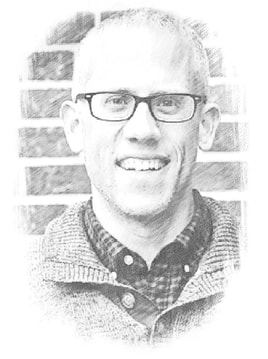 Kevin Deyoung Files
Kevin Deyoung Files
Mark David Hall has written an important book full of important history and corrective scholarship. As a physical book, the quality would have been improved with a better typeface, better paper, a better cover design, and something besides running footnotes (so that the total reaches 555 for the entire book). The impressive content, though, more than makes up for the lackluster design. Although the second half of the book strays a bit from the historical question “how Christianity has advanced freedom” into present-day advocacy for religious freedom, the book as a whole is thoroughly researched and effectively argued. Hall’s work is a needed reminder that even if America never was, and is not now, “Christian” in every sense of the word, we can never fully separate—nor should we want to separate—Christianity from America. The fight for liberty, not least of all religious liberty, is ongoing and should be the concern of all Americans. And for that liberty in the first place—for all Americans—we have Christians to thank. --Kevin DeYoung; 5.24.23
May 5, 2023: Christian Post: Arizona megachurch Pastor Joshua Butler resigns amid controversy over book’s hyper-spiritualization of sex
Prominent pastors also urged The Gospel Coalition to remove the article and issue an apology, including former Saddleback Church Pastor Rick Warren and Kevin DeYoung. Rich Villodas, pastor of New Life Fellowship in New York, issued a statement retracting his initial endorsement of the book.
Prominent pastors also urged The Gospel Coalition to remove the article and issue an apology, including former Saddleback Church Pastor Rick Warren and Kevin DeYoung. Rich Villodas, pastor of New Life Fellowship in New York, issued a statement retracting his initial endorsement of the book.
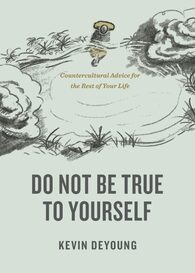
May 16, 2023; Crossway Books:
Countercultural Yet Biblical Advice for High School and College Students, Ideal for Graduation and Birthday Gifts
Most speeches addressed to high school and college students follow a similar theme: march to the beat of your own drum. This may sound encouraging on the surface, but Scripture exhorts believers to submit their lives to the will of God, not their own desires. Christian students need gospel-centered truth to guide them on their journey toward independence.
In this collection of inspiring sermons and graduation speeches, Kevin DeYoung delivers a motivational, biblical call to young people: serve God faithfully―and if necessary, counter-culturally―in the next season of your life. Do Not Be True to Yourself includes practical advice for cultivating a Christ-centered worldview in every area of adult life, including relationships, work, church participation, and spiritual growth, making it a transformational resource for mentoring students.
Countercultural Yet Biblical Advice for High School and College Students, Ideal for Graduation and Birthday Gifts
Most speeches addressed to high school and college students follow a similar theme: march to the beat of your own drum. This may sound encouraging on the surface, but Scripture exhorts believers to submit their lives to the will of God, not their own desires. Christian students need gospel-centered truth to guide them on their journey toward independence.
In this collection of inspiring sermons and graduation speeches, Kevin DeYoung delivers a motivational, biblical call to young people: serve God faithfully―and if necessary, counter-culturally―in the next season of your life. Do Not Be True to Yourself includes practical advice for cultivating a Christ-centered worldview in every area of adult life, including relationships, work, church participation, and spiritual growth, making it a transformational resource for mentoring students.
- Written by Kevin DeYoung: Pastor and bestselling author shares relevant wisdom from past commencement speeches and sermons
- Concise, Engaging Chapters of Counter-Cultural Advice: Christ-centered guidance that includes developing spiritual habits, prioritizing church attendance, fighting sexual sin, and temptation, and making godly decisions. Perfect for graduation gifts, birthdays, or small group discussion
- Includes Reading Guide: DeYoung suggests 12 classic Christian books every person should read, from writers including John Calvin, G. K. Chesterton, and R. C. Sproul
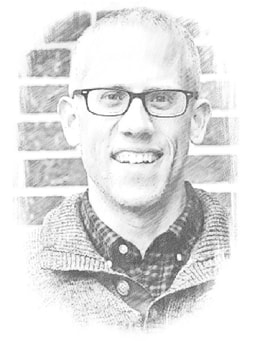 Kevin DeYoung
Kevin DeYoung
The author of 1 Samuel–not to the mention the Author behind 1 Samuel–is trying to teach us something about God. On the one hand, our God is not static, monotonous, and lifeless. As a personal, relational Being, God’s activity in the world is subject to change and allows for all the dynamism we have in our personal relationships. There was always bound to be conflict in covenantal history between God and human beings, but this does not mean there is conflict within God’s inner being. As God’s ways appear to us, there will be change and variation, but as God is in his character and essence there can be no variation of shadow due to change (James 1:17; cf. Mal.3:6; Heb. 13:8; 2 Tim. 2:13).
When God reflects on the disobedience of Saul, he uses a word that makes sense to us: the word “regret.” But this doesn’t mean God was ignorant about Saul’s sin or caught off guard by his rebellion. As John Piper points out, God is quite capable of lamenting a state of affairs he himself foreknew and brought about. In other words, God’s regret is not analogous in every way to our regret. This seems to be the point verse 29 is explicitly making. God can look back at Saul and say “I’m grieved that he sinned; it’s time to find another king” while still maintaining, “I never change my mind.”
It is the nature of our covenantal relationship with God to know God as one who responds and reacts, which ought to appear to us all the more amazing because it is the nature of our covenant keeping God never to lie, repent, or change his mind (Num. 23:19). -- --Kevin DeYoung
When God reflects on the disobedience of Saul, he uses a word that makes sense to us: the word “regret.” But this doesn’t mean God was ignorant about Saul’s sin or caught off guard by his rebellion. As John Piper points out, God is quite capable of lamenting a state of affairs he himself foreknew and brought about. In other words, God’s regret is not analogous in every way to our regret. This seems to be the point verse 29 is explicitly making. God can look back at Saul and say “I’m grieved that he sinned; it’s time to find another king” while still maintaining, “I never change my mind.”
It is the nature of our covenantal relationship with God to know God as one who responds and reacts, which ought to appear to us all the more amazing because it is the nature of our covenant keeping God never to lie, repent, or change his mind (Num. 23:19). -- --Kevin DeYoung
Dec 10, 2021: World: A theological stress test: Kevin DeYoung | When we change our views on sex, that’s never all that changes
We live in a day when the biblical sexual ethic is considered by many in the West to be not just outdated or benighted but maliciously harmful.
Aug 11, 2021: Christian Post: If Kevin DeYoung is a white supremacist, then we all are
So what happened? In a nutshell, the “Mr. Rogers” of the evangelical world, Kevin DeYoung, a Presbyterian Church in America (PCA) pastor and theologian (and the author of popular books like Just Do Something and The Hole in our Holiness), was accused of being a “product of white supremacy” by two other PCA pastors and authors — Duke Kwon and Gregory Thompson. His crime? Writing a lengthy, well-reasoned, gracious, yet critical review of Kwon and Thompson’s recent book, Reparations: A Christian Call for Repentance and Action.
We live in a day when the biblical sexual ethic is considered by many in the West to be not just outdated or benighted but maliciously harmful.
Aug 11, 2021: Christian Post: If Kevin DeYoung is a white supremacist, then we all are
So what happened? In a nutshell, the “Mr. Rogers” of the evangelical world, Kevin DeYoung, a Presbyterian Church in America (PCA) pastor and theologian (and the author of popular books like Just Do Something and The Hole in our Holiness), was accused of being a “product of white supremacy” by two other PCA pastors and authors — Duke Kwon and Gregory Thompson. His crime? Writing a lengthy, well-reasoned, gracious, yet critical review of Kwon and Thompson’s recent book, Reparations: A Christian Call for Repentance and Action.
Nov 23, 2016: Jesus Creed: Tweet by Kevin DeYoung
So, according to DeYoung fidelity is determined by role not by love; he has here accused all egalitarians of not having a grounding for a faithful monogamous marriage.
So, according to DeYoung fidelity is determined by role not by love; he has here accused all egalitarians of not having a grounding for a faithful monogamous marriage.
Apr 7, 2015: Crossway: Video: What Does the Bible Really Teach about Homosexuality?
In the video below, pastor and author Kevin DeYoung answers a controversial question: What does the Bible really teach about homosexuality?
Mar 13, 2015: Kevin DeYoung: Gospel Coalition: Why Can’t the Church Just Agree to Disagree on Homosexuality?
In the video below, pastor and author Kevin DeYoung answers a controversial question: What does the Bible really teach about homosexuality?
Mar 13, 2015: Kevin DeYoung: Gospel Coalition: Why Can’t the Church Just Agree to Disagree on Homosexuality?
Jan 8, 2015: Kevin DeYoung: Gospel Coalition Stuart Scott and (Not) Responding to Internet Critics
|
A sermon clip from:
The Sanctity of Secrecy -
Matthew 6:1-18
Kevin DeYoung | Senior Pastor
October 26, 2014
University Reformed Church
|
"A hypocrite is not someone who does what is right even when they don't feel like it, that's called maturity." -- Kevin DeYoung January 10, 2019: DeYoung completed a Ph.D. in Early Modern History focusing on the theology of John Witherspoon at the University of Leicester (John Coffey served as his adviser), successfully defending his Ph.D. thesis on January 10, 2019.
|
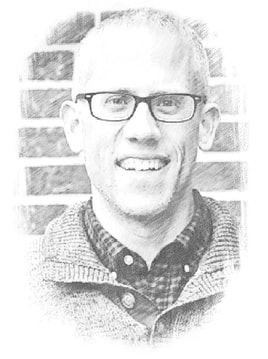 Kevin Deyoung
Kevin Deyoung
"Discernment is hard work. On the one hand, journalists or bloggers have every right to dig into the facts of some brewing controversy. When the smoke leads you to a fire, lets not be afraid to sound the alarm. Done in the right spirit, public accountability for public figure is good and right. On the other hand, lets not fall foul of I Corinthians 13 by believing nothing, overlooking nothing, bearing nothing, and hoping for nothing except to find more dirt. How sad it is when a love for the truth becomes a love for exposing thy neighbor."
--Kevin DeYoung; Gospel Coalition; 3.18.14


